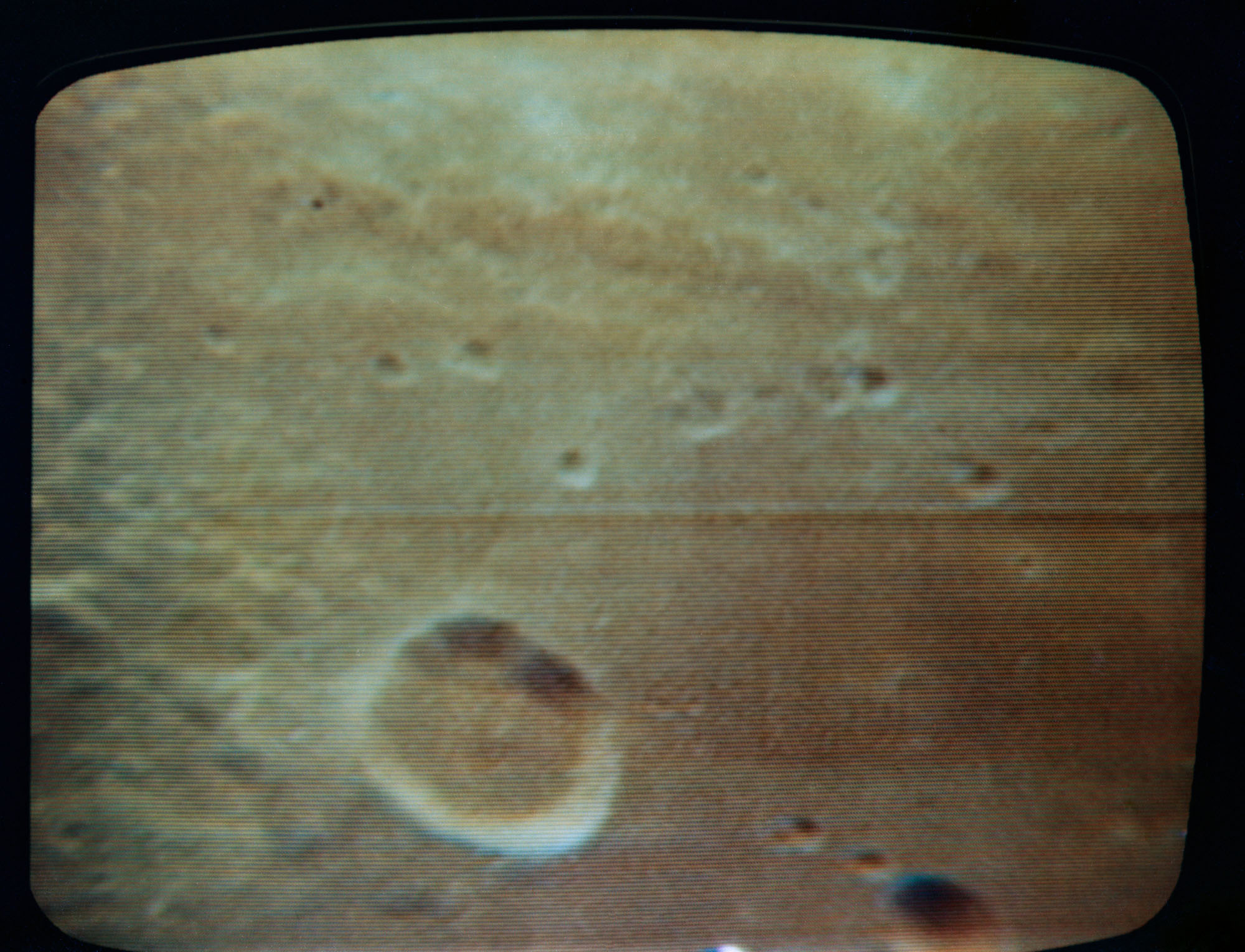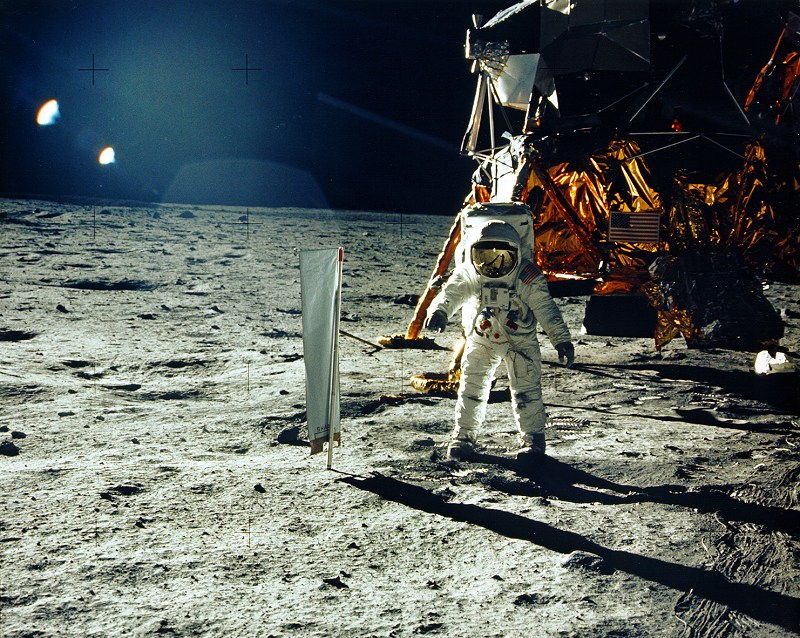Apollo 11 Flight Log, July 19, 1969: Live TV from near the Moon

Click unmute on the video above hear mission audio from Flight Day 3 of the Apollo 11 mission and listen to over 50 minutes of audio in the video from NASA below.
This summer marks the 50th anniversary of NASA’s Apollo 11 mission. Fifty years ago today (July 19), the Apollo 11 crew were able to view the lunar surface up close from the spacecraft. The astronauts spent the day preparing for the lunar landing which was scheduled for the very next day. Here’s how it happened.
Astronauts on the Apollo 11 crew started their day early, at 6:58 a.m. EDT, when they called Mission Control to ask about a scheduled course correction to set their docked spacecraft on the first journey to the surface of the moon.
In response, controllers advised the men that the maneuver had been canceled and also told them they could go back to sleep. The crew of Neil Armstrong (commander), Michael Collins (command module pilot) and Buzz Aldrin (lunar module pilot) then received a signal at 8:32 a.m. to start the day.
- Apollo 11 at 50: A Complete Guide to the Historic Moon Landing
- Relive the Apollo 11 Moon Landing Mission in Real Time
- Apollo 11 Moon Landing Giveaway with Simulation Curriculum & Celestron!
Following a report of the day's news (which was heavily focused on the moon landing) and housekeeping chores, Collins told Mission Control of the view out the window.
"The view of the moon that we've been having recently is really spectacular," Armstrong said. "It fills about three-quarters of the hatch window and, of course, we can see the entire circumference, even though part of it is in complete shadow, and part of it's in earthshine. It's a view worth the price of the trip."

At 1:55 p.m., Armstrong radioed back what the crew could see. "It looks very much like the pictures, but like the difference between watching a real football game and watching it on TV-no substitute for actually being here."
Get the Space.com Newsletter
Breaking space news, the latest updates on rocket launches, skywatching events and more!
Later that day, the Apollo 11 crew performed a scheduled television broadcast, fired their engines again to make their orbit more circular, and did another checkout of Eagle. The landing was scheduled for the next day, July 20.
Apollo 11 Flight Log:
July 18, 1969: Entering the Moon's Gravity
July 17, 1969: Course Correction to Reach the Moon
Editor's note: This feature, originally posted in 2014, has been updated for the 50th anniversary of the Apollo 11 mission. Space.com contributor Chelsea Gohd contributed to this report.
Follow Elizabeth Howell @howellspace, or Space.com @Spacedotcom. We're also on Facebook and Google+.
Join our Space Forums to keep talking space on the latest missions, night sky and more! And if you have a news tip, correction or comment, let us know at: community@space.com.

Elizabeth Howell (she/her), Ph.D., was a staff writer in the spaceflight channel between 2022 and 2024 specializing in Canadian space news. She was contributing writer for Space.com for 10 years from 2012 to 2024. Elizabeth's reporting includes multiple exclusives with the White House, leading world coverage about a lost-and-found space tomato on the International Space Station, witnessing five human spaceflight launches on two continents, flying parabolic, working inside a spacesuit, and participating in a simulated Mars mission. Her latest book, "Why Am I Taller?" (ECW Press, 2022) is co-written with astronaut Dave Williams.









